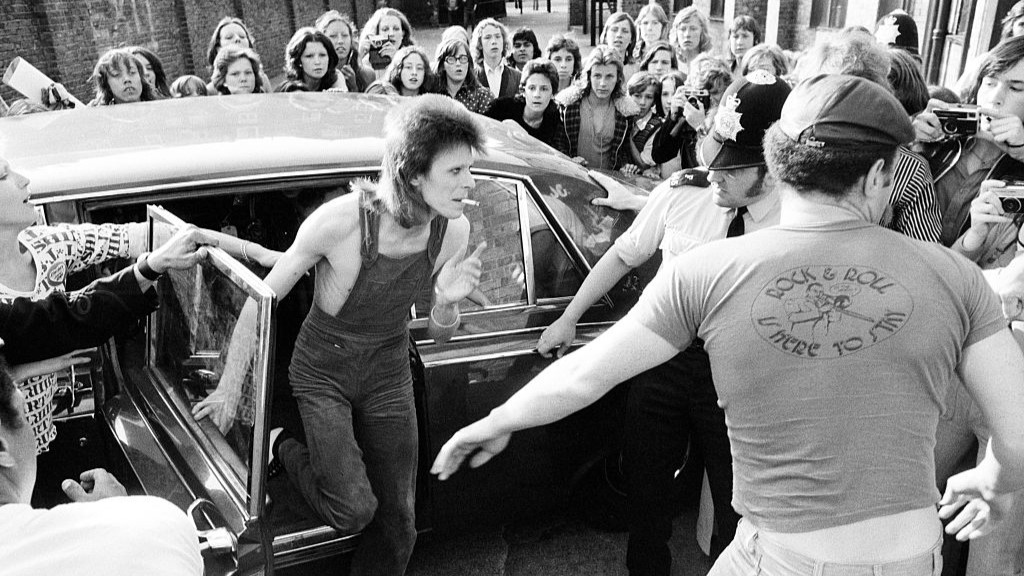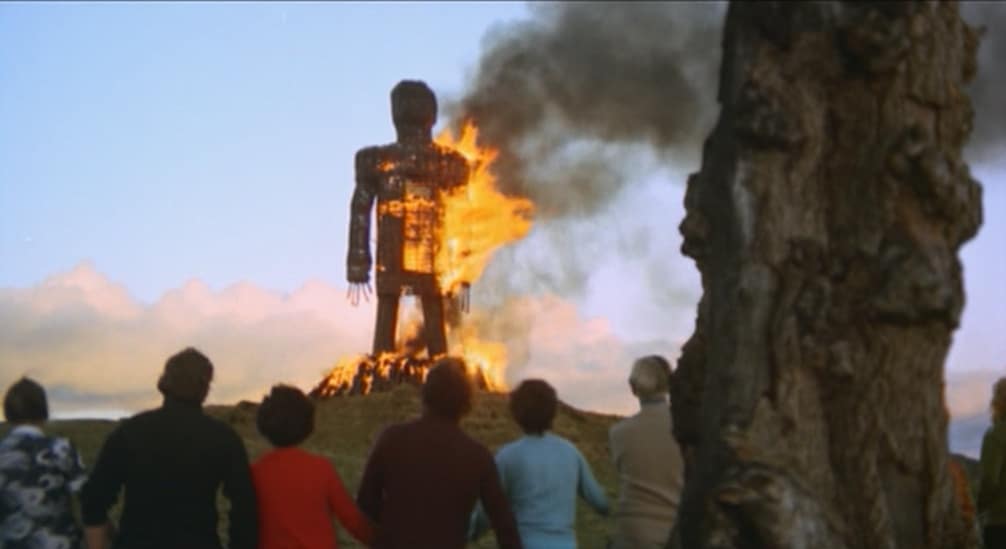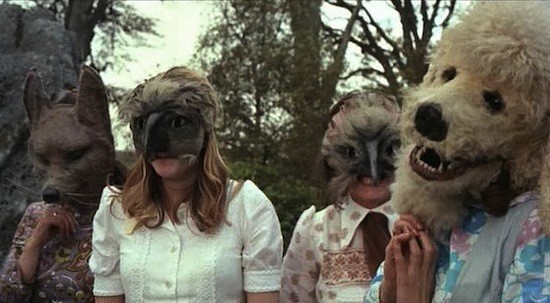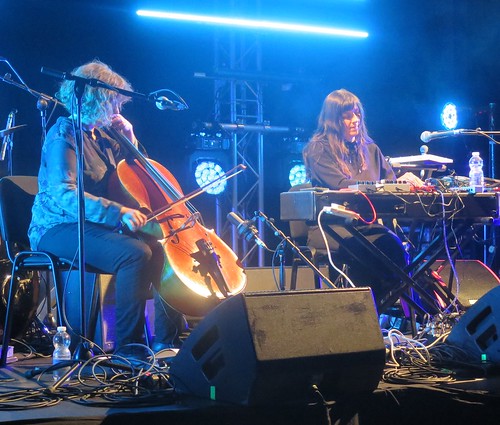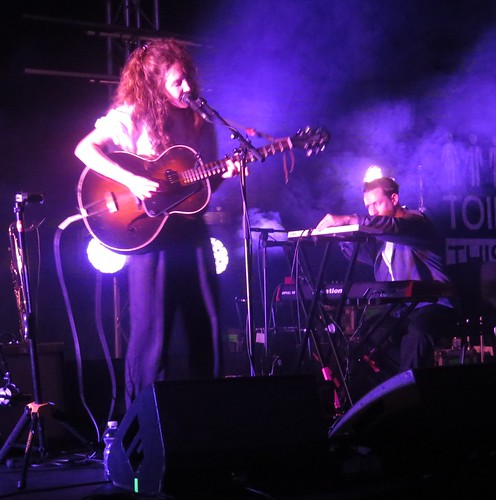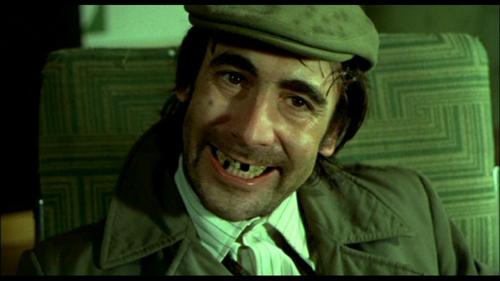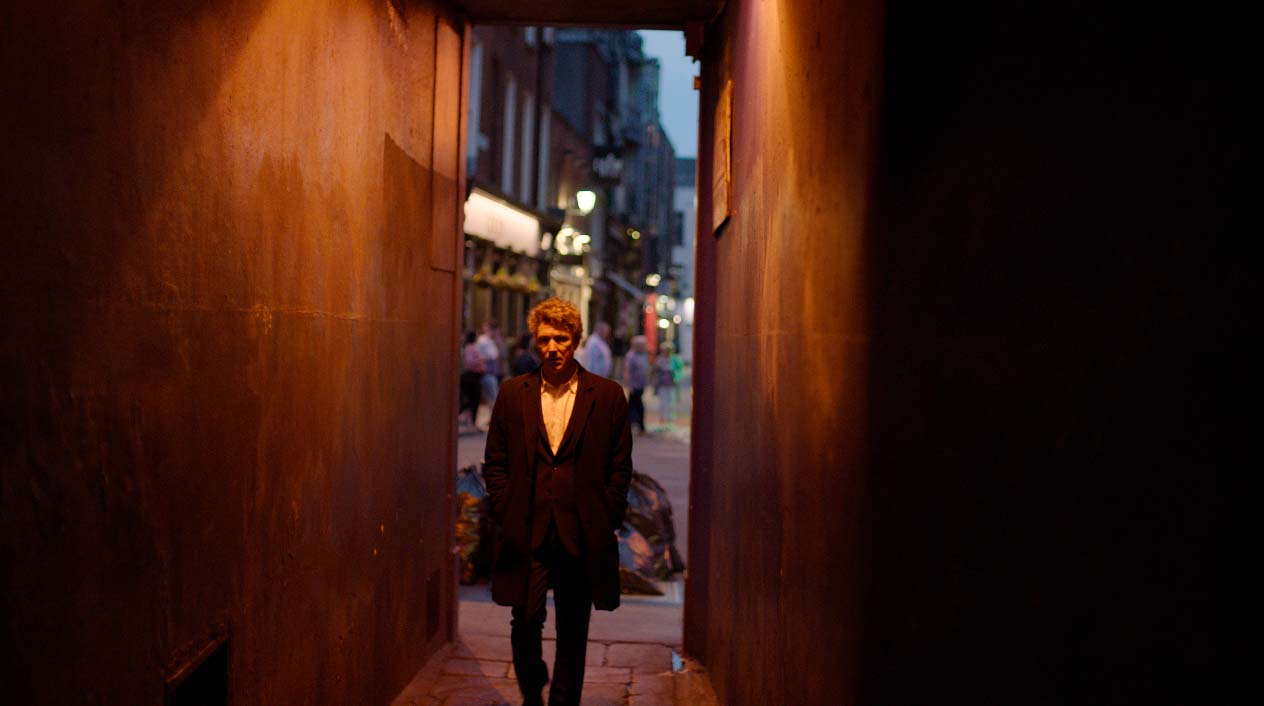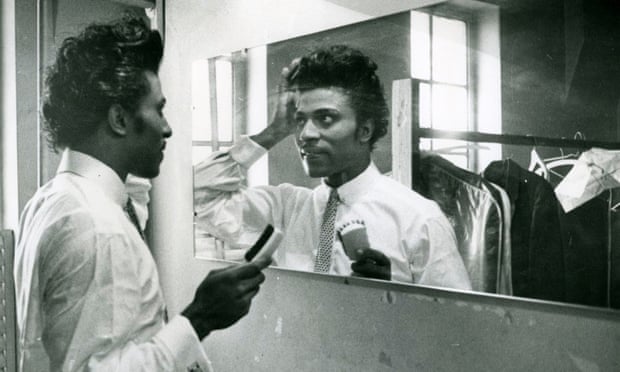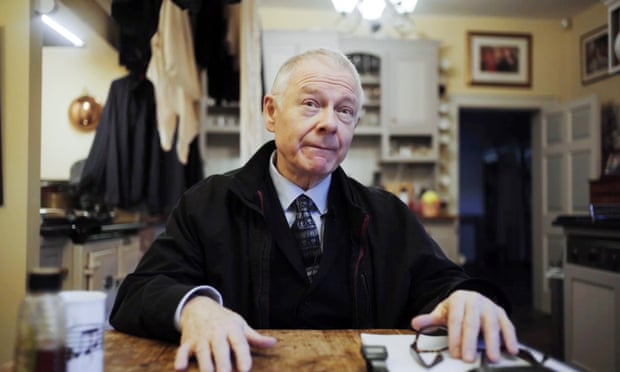I signed up for a series of events being organised by the Reception event organisers, which they were calling the Reception Weekend (with events taking place on Friday and Saturday but not the Sunday; perhaps the Reception people are strict sabbatarians). But I also went to a Georgian polyphonic singing event called The Song and the Hand, because my beloved was taking part in it. So I was setting myself up for an action packed two days.

The Reception Weekend was taking place in the Depot venue at the Complex in Smithfield, a converted warehouse. The Friday evening Reception event saw me arriving down a bit late, unsure as to whether the advertised time was when the doors were going to open or when the concert was going to start. Thus it was that I missed Cora Venus Lunny, the one artist on the Reception Weekend's bill I had definitely heard of previously. But I did catch Phil Maguire, who came onstage with a piece of electronic equipment that was all wires and knobs with no obvious keyboard. His music was of the long tone variety, hardcore in its unchanging nature, with slight changes in tone accomplished by minor turns to the knobs. I loved it and it made for a great and uncompromising start to the weekend.
Maguire was followed by Pat Thomas, whom I understand to be somewhat well known. The piano was his thing, but not in a plinky plonky way. Rather, he was very improvvy about he approached it, not just playing the keys but also leaning over it and manually attacking the strings to make strange musical noises that way. The polished underside of the piano's lid made for a highly reflective surface, which made Thomas' explorations of the piano's interior quite visually striking. For his second piece he largely limited himself to playing the keys, but there was no retreat into conventionality here either, with the playing deliberately slipping into sounds that would sound a bit "off" to anyone expecting Moonlight Sonata.
The next day I made my way back to the Complex for the Reception Weekend's afternoon session, which was introduced by Kate Butler. First up was Rob Casey/, whose set saw him play piano while also doing electronic stuff. The electronics were of the tonal variety, but what I really remember about this gig was that half way through I started noticing this weird whooshing sound that I thought was part of the set but then realised was the sound of it bucketing down with rain outside (the Complex isn't great for soundproofing).

The next act was Julia Reidy, whose thing was playing playing guitar but running it through loads of funny electronics. At times this reminded me a bit of Flying Saucer Attack (good) but to me the different parts of her set felt a bit disjointed. In retrospect Reidy's set may have jarred for me because the frequent transitions made it the antithesis of the very minimal music that the other performers were presenting.
I would have liked to stay for Judith Hamann, the last performer scheduled for this slot, but I had to leave to make my way over to the D-Light Studios, another converted warehouse space, for The Song and the Hand. This was just round the corner from the Five Lamps, which was appropriate as the concert was taking place as part of the Five Lamps Arts Festival, which takes place in the north east inner city. The venue is also very close to the Dracula House on Buckingham Street and the derelict mansion Aldborough House. The Georgian singing was taking place in a corner of the warehouse's first floor, the rest of which was taken up by a craft market. The singers arranged themselves in a circle on the floor, with people sitting around them on cushions and chairs. While they sang their songs they either knitted or unwound thread, with audience members having been encouraged to also bring their own knitting along. The songs I understand to have all been work songs, but women's work songs rather than the kind of songs sung by people working out in the fields (or did women work in the fields in Georgia in the days of yore that preceded mechanised agriculture?).

If you've heard Georgian polyphony before then the general sound of the tunes would not particularly surprise you, but it was great hearing it again and seeing it enrapture people. The attendees seemed to enjoy the event. On the last tune the audience were invited to join in, with visiting group member Bernard Burns doing a great job of teaching the tune to the audience on the hoof.

I then had time to trudge home in the rain to grab some food and feed our hungry cat before heading out to the Complex again for the last session of the Reception Weekend. The first act tonight was electronic performer Sharon Phelan, who was (amazingly) the first laptop musician at the event. Her music was also rather droney, but it also swirled and pulsated in an endearing manner.
Phelan was followed by Mohammed Reza Mortazavi and Mark Fell playing together. On this occasion Mortazavi played percussion instruments (judging from the online programme notes, there were tombak and daf, the former a fairly large handheld drum and the latter somewhat akin to the Irish bodhrán) while Fell hid behind the largest set of electronic equipment at the weekend. This was an odd set. At times it felt like the least weird music of the whole Reception Weekend, with Fell's electronics sliding in the direction of four to the floor dance music (all the more bizarre given that this was an all-seated gig). Mortazavi playing was very impressive, shifting at times from what struck me as being a bit non-standard for the instruments (like I would know) to the more straightforwardly virtuosic. On the daf he was almost channelling John Bonham, with his playing in the latter part of the set getting very locked in with Fell's dancetastic sounds. I tapped my toe.
Some of these people are on Bandcamp:
More amazing gig photos
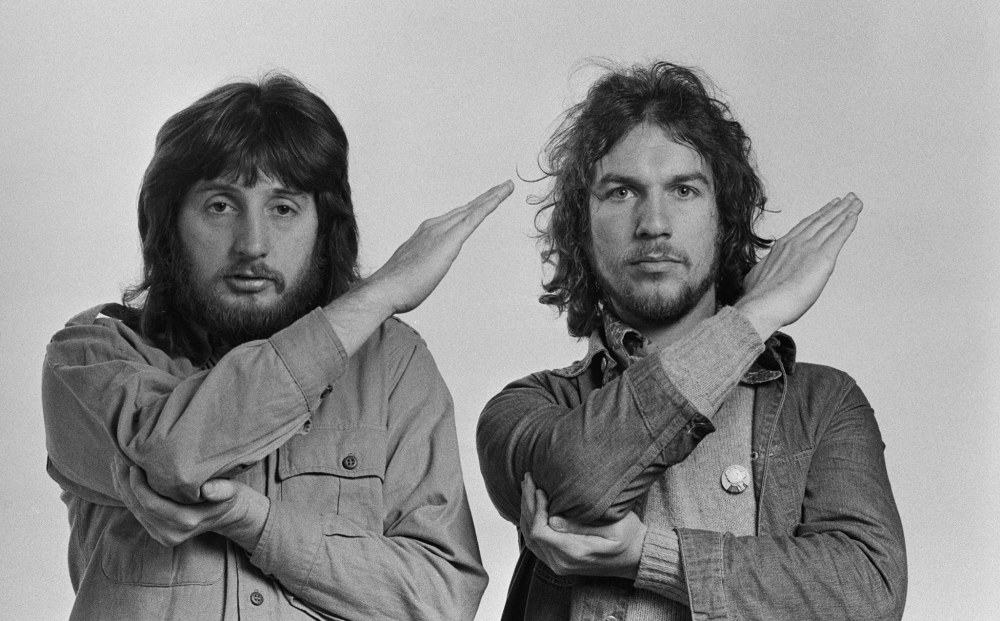 This is the film about those guys that did all those great prog record covers in the 1970s. It is fairly straightforward formally, with an interview with surviving Hipgnosis guy Aubrey "Po" Powell intercut with older footage of the late Storm Thorgerson and contributions from other people (some more relevant than others), all combined with images of the record covers they designed and music from those records. There is no interview footage with Peter Christopherson, who joined Hipgnosis in the mid-1970s, which might be just as well. The trailer had suggested that the film was going to be a lot of boring talking heads droning on about record covers, but that proved to be misleading. Instead the film combined the interview footage with music and images to make for an appealing
This is the film about those guys that did all those great prog record covers in the 1970s. It is fairly straightforward formally, with an interview with surviving Hipgnosis guy Aubrey "Po" Powell intercut with older footage of the late Storm Thorgerson and contributions from other people (some more relevant than others), all combined with images of the record covers they designed and music from those records. There is no interview footage with Peter Christopherson, who joined Hipgnosis in the mid-1970s, which might be just as well. The trailer had suggested that the film was going to be a lot of boring talking heads droning on about record covers, but that proved to be misleading. Instead the film combined the interview footage with music and images to make for an appealing  gestalt. If you were broadly familiar with the Hipgnosis story then perhaps the film would not tell you too much, but listening to Led Zeppelin or Pink Floyd blasting out on a big cinema's sound system while watching the album covers roll over the screen makes for an enjoyable way to spend time.
gestalt. If you were broadly familiar with the Hipgnosis story then perhaps the film would not tell you too much, but listening to Led Zeppelin or Pink Floyd blasting out on a big cinema's sound system while watching the album covers roll over the screen makes for an enjoyable way to spend time.
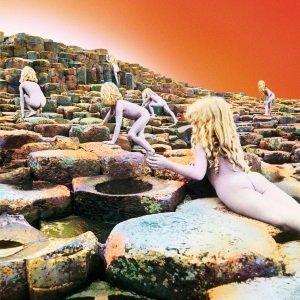 yet Squaring the Circle features contributions from a Beatle, two members of Led Zeppelin, and all surviving former members of Pink Floyd, as well as Roger Dean and Peter Saville. That's such a high yield line-up that it's hard to see why it would be felt necessary to pad it out with Noel Gallagher. So why was Noel Gallagher in the film?
yet Squaring the Circle features contributions from a Beatle, two members of Led Zeppelin, and all surviving former members of Pink Floyd, as well as Roger Dean and Peter Saville. That's such a high yield line-up that it's hard to see why it would be felt necessary to pad it out with Noel Gallagher. So why was Noel Gallagher in the film?
